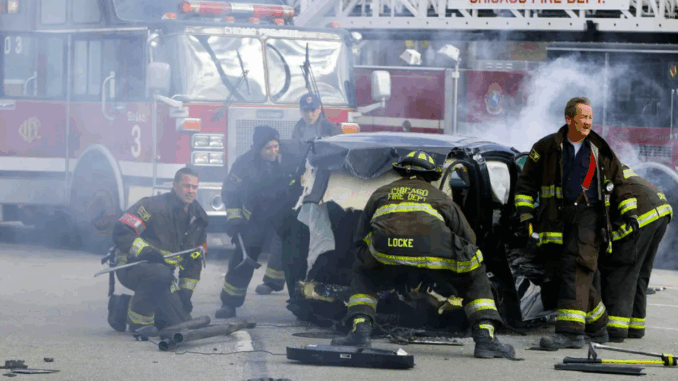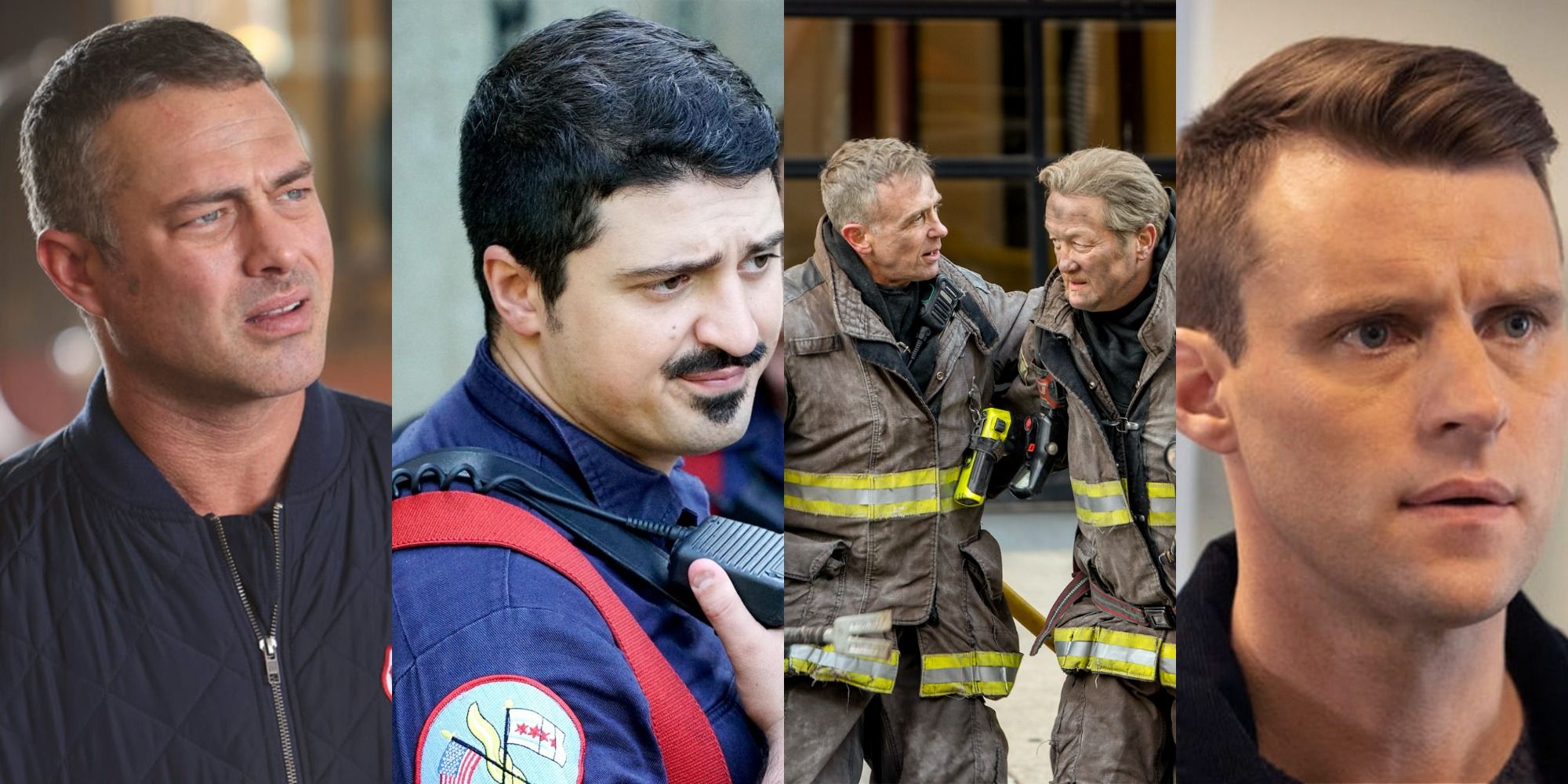
For over a decade, Chicago Fire has brought adrenaline-pumping rescues and deeply human stories to television screens across the world. But beyond the flames and cliffhangers, it’s the emotional core of the series that has struck the deepest chord — especially with real-life firefighters who know the cost of the job better than anyone.
Season after season, the NBC drama has been praised for its authenticity, not only in depicting rescue scenarios but also in exploring the trauma, grief, and camaraderie that come with being a first responder. To understand just how powerful that impact is, we asked real Chicago firefighters to reflect on some of the show’s most emotional moments — and why they matter so much.
Remembering Andy Darden (Season 1)
One of the show’s earliest gut punches was the death of Andy Darden in the pilot episode. While viewers barely got to know him, his death cast a long shadow over the firehouse — especially for Kelly Severide and Matthew Casey, whose friendship fractured under the weight of blame.
Lieutenant Marco Alvarez, a 15-year veteran of the Chicago Fire Department, recalls the episode vividly.
“The way they portrayed the aftermath — the silence, the anger, the confusion — it was so real. When we lose someone in the field, there’s this numbness. You still have to show up, you still have to do the job, but a piece of you is just gone.”
For many real-life firefighters, Darden’s death symbolized the harsh truth that danger is constant — and that the grief doesn’t wait for a convenient time.
The Death of Leslie Shay (Season 3)
One of the most devastating moments in the series came in the Season 3 premiere, when it was revealed that paramedic Leslie Shay had died in the line of duty. Her death wasn’t just a plot twist — it was a seismic shift in the show’s emotional landscape.
Paramedic Christina Torres, who’s worked in both EMS and fire suppression, says Shay’s death was a turning point.
“There are so few female paramedics on TV that feel real, and Shay was one of them. Losing her hit hard. I remember thinking, ‘That could’ve been one of us.’ But what I appreciated most was how they showed the grief linger. It wasn’t one episode and done. It changed all of them.”
Shay’s death had a ripple effect that still influences character arcs years later — a testament to how Chicago Fire treats its emotional stakes with care.
Cruz’s Brother Leon and the Burden of Family
Season 2 delved into the complexities of Joe Cruz’s relationship with his younger brother Leon, who was involved with a local gang. The storyline blended personal and professional tension as Cruz struggled with whether to intervene — and potentially risk both their lives.
Captain Darrell Murphy, who mentors youth in Chicago’s South Side, praised the show’s willingness to explore family dynamics.
“We all carry our personal lives into the job, whether we want to or not. Watching Cruz wrestle with that decision, it was raw. That’s the kind of thing firefighters talk about behind closed doors. You’ve got to protect your family, but you’ve also got to protect your integrity.”
Otis’ Final Call (Season 8)
When Brian “Otis” Zvonecek died after a fire at a mattress factory in the Season 8 premiere, it wasn’t just a loss for Firehouse 51 — it was a loss for the viewers who had come to love his optimism, humor, and loyalty.
Real firefighters found the scene especially accurate — from the chaos of the rescue to the quiet, gut-wrenching moment of his final words in Russian.
Engineer Jason Meeks, who’s worked in high-rise rescue teams, reflects:
“That episode took me out. There’s always this fear that it could be one of your own. And when Otis spoke in another language, you felt how personal it was. That’s how death really feels — it doesn’t care where you are, it hits you like a whisper.”
The memorial scene that followed, with the firehouse dedicating a statue in his honor, mirrored real tributes held across departments nationwide.
Brett and Casey’s Long Goodbye

While not a tragedy in the traditional sense, the emotional exit of Matt Casey in Season 10 and the eventual distance between him and Sylvie Brett struck a chord with those who’ve navigated the toll that duty takes on relationships.
Firefighter Kendra Ng, who’s married to a fellow first responder, explains:
“Our jobs don’t always line up with happy endings. You get calls at 3 a.m., holidays are missed, and sometimes you’re just… not there. Seeing Brett and Casey try, and ultimately let go, felt so real. It’s the kind of heartbreak we don’t talk about enough.”
The storyline was a quiet reminder that even when love is strong, timing and profession can pull people apart.
Why These Moments Matter
For real firefighters, Chicago Fire is more than entertainment — it’s a mirror. And while no show can fully capture the weight of what it means to run into danger, Chicago Fire comes closer than most.
The show has consistently featured emotional realism that resonates. Whether it’s grief, survivor’s guilt, fractured friendships, or hard-won victories, it honors the emotional labor that comes with the job.
Triumph in the Midst of Tragedy
What unites these emotional moments is not just the sorrow, but the resilience that follows. Firehouse 51 mourns, but they keep going. They honor their fallen. They support each other. And they make room for healing.
That’s what real firefighters say the show gets right: the unbreakable, sometimes messy, always meaningful bond that forms when you trust someone with your life — and your heart.
As one real Chicago captain put it,
“You don’t watch this show just for the fires. You watch it to remember why we show up the next day.”